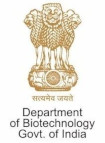Metabolic Regulation of Cell Fate(RCF)

The fate of an individual cell is determined by its ability to perceive signals from its environment, and regulate internal programs (metabolic, proteostatic and transcriptional) that determine overall outcomes. One of the most exciting areas of research is therefore how does the metabolic state of a cell (as determined by nutrient environments as well as the available nutrient sensing machinery in a cell) drive eventual cell fates. This is especially important in the context of stem cells, which are ‘plastic’ and pushed towards different outcomes based on their metabolic states and signalling system activities. Our goal is to therefore understand basic molecular mechanisms of nutrient and metabolic sensing, and how that controls the fates of individuals and groups of cells. Recent discoveries from the theme range from identifying novel mechanisms of nutrient sensing coupled to overall metabolic state regulation, as well as identifying the role of key metabolites in immune function or senescence. We intend to further apply our systems-level analysis, biochemical identifications of molecular mechanisms and physiological assays, towards questions pertinent to metabolic disorders (ageing, diabetes, kidney disease), rare diseases and regeneration. As part of the Regulation of Cell Fate theme, we bring together expertise in understanding metabolic network organisations and signalling systems (Laxman), systemic physiology (Mukherjee), and disease and aging biology (Ramanathan). In addition, across themes we study cell fate decisions in inflammation (Mukherjee, Guha), post-transcriptional regulation of cell fates (Palakodeti), stem cell fates in cardiovascular development (Inamdar) and more.
People
 |
 |
 |
| Dr.Sunil Laxman Signaling & metabolic networks |
Dr.Tina Mukherjee Metabolic and systemic control Nutrient sensing |
Dr.Arvind Ramanathan Tissue repair & homeostasis |
,

Associated faculty - Dr.Arvind Ramanathan, Dr.Tina Mukherjee,Dr.Sunil Laxman,Dr.Dasaradhi Palakodetti,
Prof.Maneesha Inamdar,Dr.Arjun Guha

